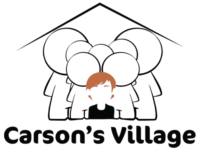When a loved one passes away, there are so many things to consider, accompanied by a flood of emotions. Sometimes, you may feel lost and not even know where to begin, particularly as it relates to knowing what to do with a loved one’s remains. Some of the information below can help you identify what goes into both the cremation and burial processes.
WHAT IS CREMATION?
Cremation is the process of reducing a body to its most basic physical components. The body, often in a simple casket, is moved to a “furnace” with an open flame. Cremated remains are referred to as ashes. These ashes are not just dust. Human cremation remains are a mix of ashes and bone fragments. Cremation also entails regulations and laws on a state-by-state basis, click here to check your state’s information.
WHAT IS BURIAL?
When thinking of burial, most people think of the traditional, in-ground burial for a full-body casket. It is possible to inter (bury) cremation remains. The family has the option of doing a full funeral at the cemetery with cremation remains. Most cemeteries require you to purchase a burial plot for an urn, or an urn vault or lining.
There are many choices to consider at the cemetery:
- An urn plot: A smaller space designed for the burial of a cremation urn.
- Single burial plot: may be used for a casket or an urn
- Double or companion plot: This refers to plots that are either adjacent to each other or in some cases a single plot that can accommodate two caskets.
- Family plot: This is a number of spaces/plots in the same area where members of the same family are buried.
Some people choose not to inter their deceased in the ground. There is an option of having your loved one’s remains to be placed or entombed above ground level. There are several options with above-ground burial:
- Mausoleum Building: There are several types of mausoleum buildings, which are designed to house the casket. Similar to burial plots, you can choose a private mausoleum that can accommodate a number of family members or a community mausoleum.
- Lawn Crypt: A lawn crypt is a structure that is built above ground. The grass is planted over the structure so that it blends into the environment. The casket is placed inside the crypt. This option blends the idea of both in-ground burials with mausoleum options.
- Columbarium: A columbarium is a building or wall structure that is designed as a series of niches to hold cremation urns. Often there are many levels to these structures. The prices for the space will vary depending on how high up from the ground the niche is located.
WHAT ARE THE COSTS FOR CREMATION OR BURIAL?
Funeral costs vary widely depending on where you live and what elements you choose to include in the funeral ceremony. According to the latest Funeral Price Survey by the National Funeral Directors Association, the average cost of a funeral in 2019 was $9,135, which includes the most commonly selected items for a traditional funeral, such as a casket and vault. This cost does not reflect the cost of the cemetery plot.
Funeral Homes are required to show you all of the choices and charges. You and your family will need to consider what timing, location, and needs best serve you as mourners. Here are some options:
- No funeral or memorial service (cremation) is $750-$4,500.
- Cremation with a traditional funeral service (casket may be present) $7,000-$9,500. The price will vary if the family would like visitation or extra time at the funeral home.
- Burial with a traditional funeral/memorial service (visitation and the casket is present) is $12,500-$17,500. The funeral can take place at one location and then the mourners move to the grave/place of interment.
WHO IS RESPONSIBLE FOR MAKING THE DECISION?
Deciding about your loved one’s remains is a big responsibility. If your loved one did not or was unable to make their wishes known, consider including input from other close family members or loved ones to help alleviate some of the pressure you may feel regarding the decision. Deciding what is right for you and your loved one depends on many factors, including cost, religious beliefs, a possible request from your loved one, and family traditions. In the end, only you can decide what is right for your circumstances.
